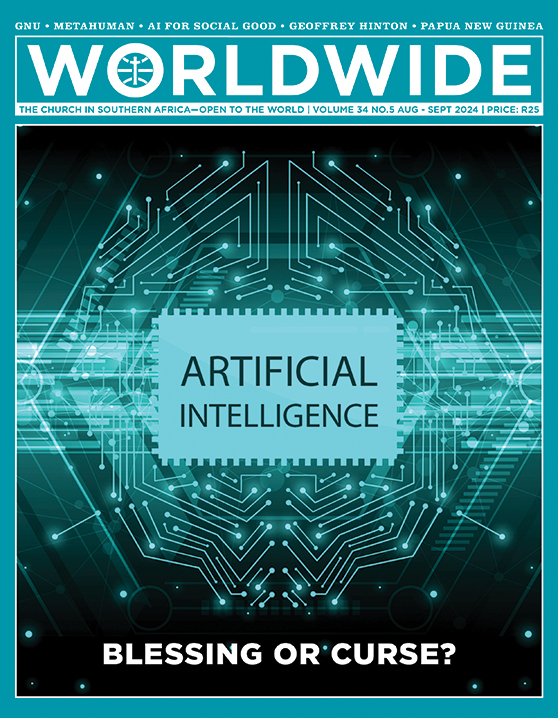
ARTIFICIAL INTELLIGENCE: BLESSING OR CURSE?
The image, according to Chat GPT, features the phrase “ARTIFICIAL INTELLIGENCE” at its centre, overlaid on a stylized depiction of a microchip and circuitry. This design symbolizes the integration of advanced AI technologies within modern electronic systems, emphasizing the critical role of AI in driving technological innovation and enhancing computational capabilities across various industries.
YOUTH VOICES • MOVING FORWARD

ON THE EDGE OF THE UNKNOWN
The advent of technological advancement and tools, such as Artificial Intelligence, has opened humanity towards great capabilities of improvement to our lives, provided it is used intelligently for the benefit of the whole society.
BY JILL WILLIAMS | CANDIDATE LANDSCAPE ARCHITECT, PRETORIA
TO THE person living in the Stone Age, it would probably be terrifying and fascinating to think of a world where we move from place to place using a machine. The film Night at the Museum (2006) depicts various historical characters, who lived at different times in history, and who faced unique realities. It presents to us the ways in which these people, animals, and objects were able to connect with each other, despite their differences, and the journey of getting to understand one another in a comical way. This film hints at the beauty of progress and subtly salutes the ingenuity of various peoples and cultures throughout history, showing how each of these peoples and events were needed collectively to make us who we are today as a society. We are constantly changing and developing, creating as God enabled us to create. Many people are afraid of change and the uncertainty of that which may accompany it. God does not change, yet He, in His infinite power, developed a universe that is constantly changing “from glory to glory” (2 Corinthians 3:18)—especially as regards the latest technology.
New technological frontiers
Although technological advancements take time to really impact all people within society, they eventually will. Even people in the most remote parts of the world have probably experienced some or another form of modern technology in some way—whether by seeing a satellite in the night’s sky or picking up a piece of litter along a river or seashore. What impact will Artificial Intelligence (AI) have on humanity? Throughout time and history, we have had to navigate new paths, discover new frontiers, and face the unknown, in the hope that some treasure would be discovered or that a better way of life would unfold for the brave. AI is another one of those frontiers; a testament of human ingenuity whose bounds are yet to be discovered.
We have already been introduced to the abilities and functions of AI. When hearing of the creation of robots and their being equipped with mental and physical abilities similar to and even far beyond ours, we begin to shudder at the thought of being replaced by them. Yet we also need to consider how this technology has benefited us. As I write this article, the electronic device I am using has been coded to auto-correct language and grammar errors. That in itself is part of AI. It also auto-predicts what I would like to type next. Slang or unknown words that you use frequently can even be auto or manually saved on your device. Imagine how language will develop as a result of this! All the ways in which various peoples and cultures use language are being stored and captured. We are experiencing and documenting the real-time development of language.
For the handicapped, assistive technology has opened up new ways of allowing people who are differently abled to be more independent.
Assistive writing tools, chatbots with speech analytics, personalized and immersive language learning, and so much more have been made possible by AI. This is a very necessary technological milestone. According to Henneborn (2023), AI should augment human capability. For the handicapped, assistive technology has opened up new ways of allowing people who are differently abled to be more independent. Due to the diversity and complexity of handicapped persons’ needs, the technology required to assist them must too be varied and adaptable. Tools like AI can enable users to adjust their aids to meet their needs whenever and how they need them. For users who are not mobile or have impaired motor skills, devices, tables, and screens can be adjusted physically to various heights, angles, and sizes, to accommodate the abilities of the user (Burgstahler 2022).
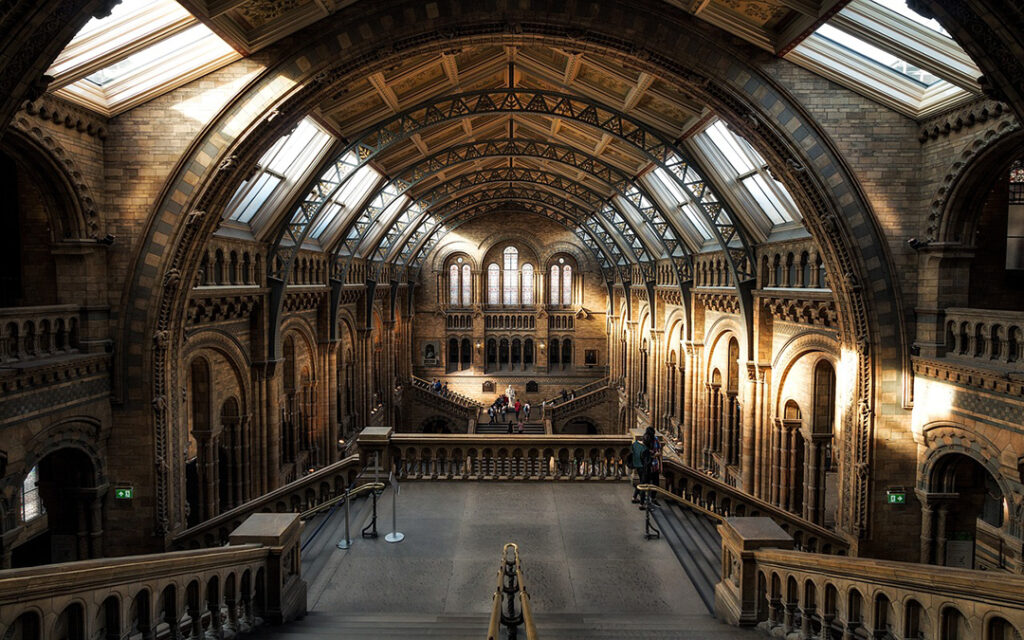
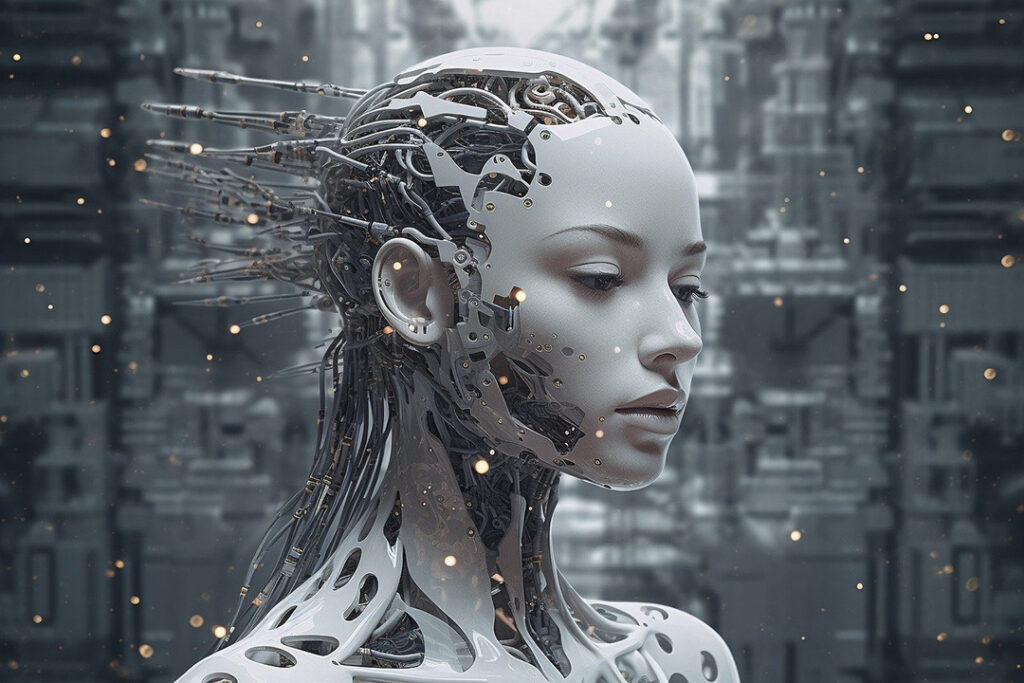
Preserving creativity
Although these advancements are really intended to be used for bettering society, people find loopholes and ways to use them for less noble purposes. One simple example is the use of AI to assist with assignments and even the creation of new songs and books. These can border on or even fall into the realm of plagiarism. AI tools enable fans of musicians and artists to sing and create songs or raps using these favorite artists’ voices. A number of people who have actually done this have become famous and are earning substantial amounts of money from social media accounts for ‘their’ work. Issues with copyright, creative license, and rights for the use of a voice or face of an artist are very common in this instance. Hence, we will have to refine definitions and laws to protect the parties involved. One famous televangelist, Joyce Meyer, once mentioned that she was asked about the possibility of her generating a daily devotional in a matter of minutes through the use of AI. The style of writing and the content would sound and look like hers, but it would be a completely separate process from the usual writing and creative process. She was amazed but replied that she preferred to do things the old-school way and to receive inspiration for her work from the Holy Spirit. Once again, this is a testament to the extent and variety of assistive tools available to us through AI. We must, however, be mindful to not compromise on what really matters: staying true to who we are. Remaining original.
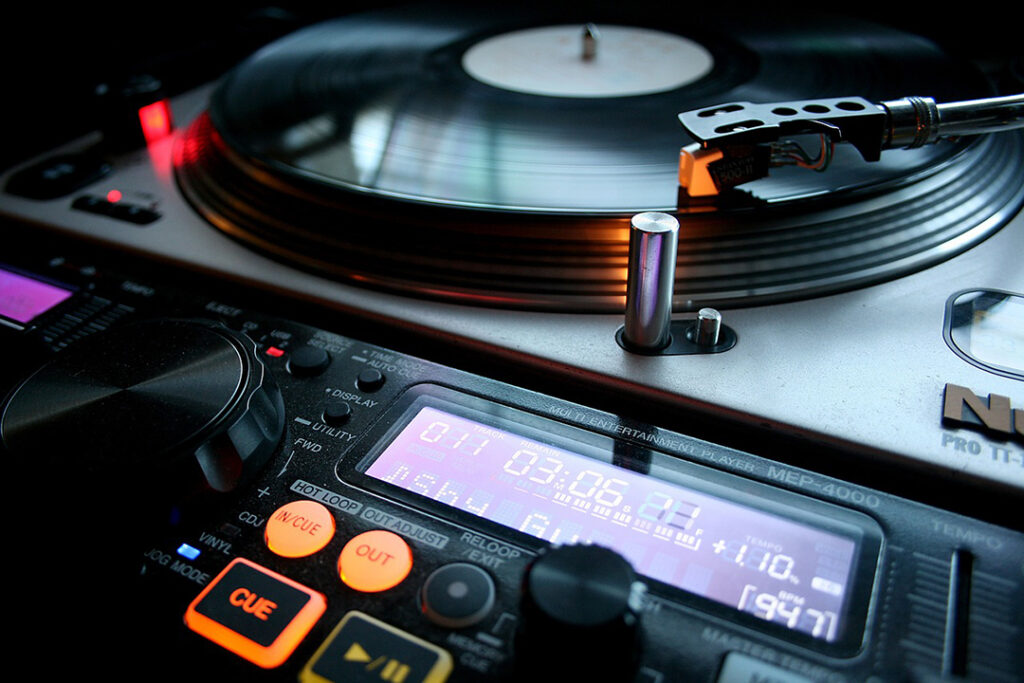

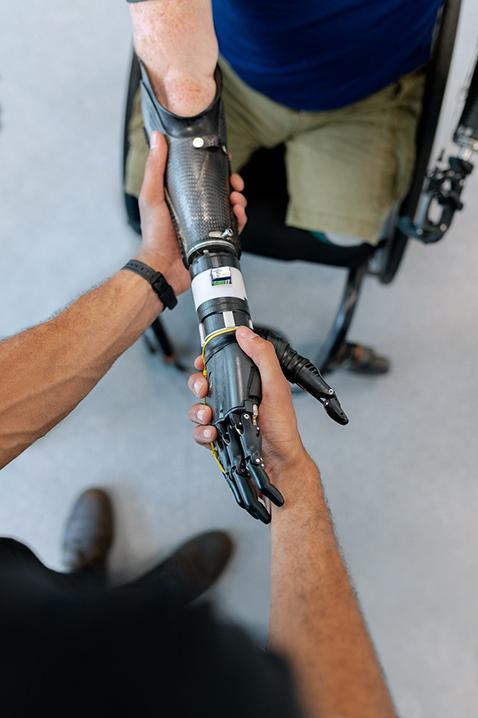
Exploring potentialities
AI can be seen as ever-evolving technology which is meant to serve humanity. God gave man dominion over all the earth, and so too over technology. We should not worship it or serve it. Prophet Isaiah says: “Behold, I am doing a new thing; now it springs forth, do you not perceive it? I will make a way in the wilderness and rivers in the desert” (Is 43:9). For many people who never imagined or dreamt of being able to lead a normal life or even work, such as unemployed disabled people (in some countries almost 80% of those with disabilities, according to Henneborn (2023)), going to work and being independent has now become possible. The prospect of being able to contribute positively to their families, to the workplace, and society is a great sign of hope.
For the handicapped, assistive technology has opened up new ways of allowing people who are differently abled to be more independent.
Isn’t that what it all boils down to: remaining hopeful in the face of challenges? God created us in likeness to Him: with the ability to create and to keep doing so. Technology can be seen as a form of creation that further aids that ability to create. As the letter to the Corinthians reads: “What no eye has seen, what no ear has heard, and what no human mind has conceived—the things God has prepared for those who love him”(1 Cor 2:9). While we have a great deal to look forward to, we must be vigilant in how we use what we have been entrusted with. Anything that is misused and abused will result in people getting hurt or being marginalized. We must use what we have been entrusted with together, moving forward with hope, from the edge of the unknown.

